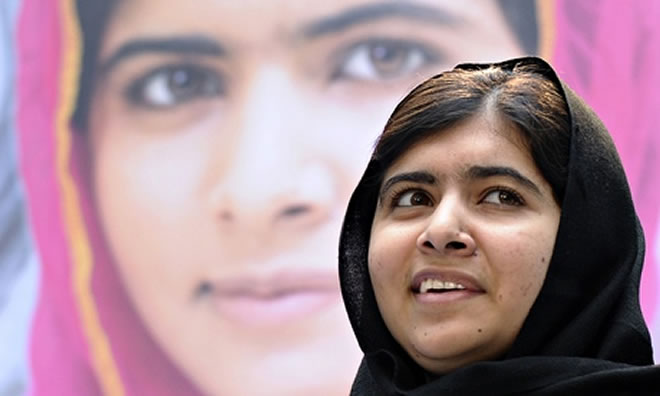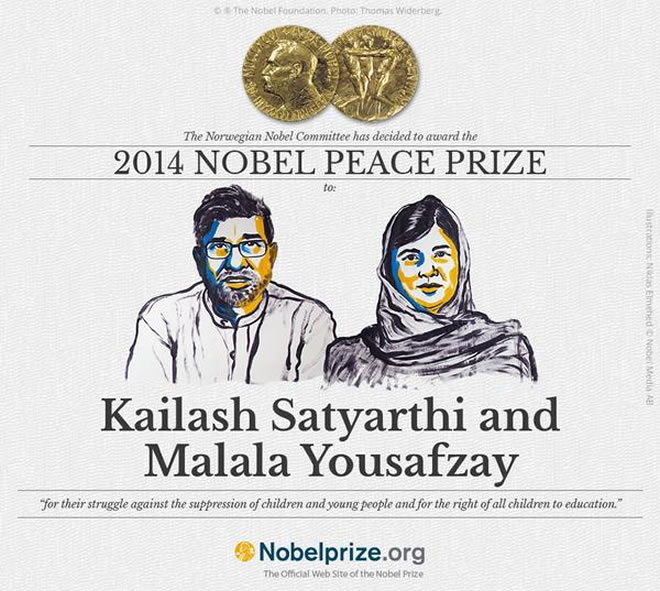
Malala Yousafzai's popularity and profile in the west is viewed with suspicion by some Pakistani conservatives. Photograph: Susan Walsh/AP

Julian Borger and Saba Imtiaz in Karachi
Friday, October 10, 2014
The award of the Nobel peace prize to the Pakistani teen activist Malala Yousafzai and Kailash Satyarthi, an Indian children’s rights advocate, was aimed at supporting their “common struggle for education and against extremism”, the Norwegian prize committee said.
The joint award was quickly welcomed by leaders in both countries, but the award to 17-year-old Malala also drew some sceptical responses from Pakistani conservatives suspicious of western motives.
The Pakistani prime minister, Nawaz Sharif, was among the slew of politicians to offer congratulations to Malala. But there was no escaping the irony that Malala was almost killed for her work advocating education for children, narrowly surviving being shot in the head by the Taliban two years ago, and still lives abroad. She is frequently accused by conservatives of selling out to the west.
Liaqat Baloch, a leader of the Jamaat-e-Islami, a rightwing religious-political party, said: “Malala is a Pakistani student and she is getting a lot of support and patronage abroad. On the surface this is not a bad thing and we welcome this, and there is no objection to the award, but the attack on Malala and then her support in the west creates a lot of suspicions.
“There are lots of girls in Pakistan who have been martyred in terrorist attacks, women who have been widowed, but no one gives them an award. So these out of the box activities are suspicious.”

Pakistani’s only other Nobel laureate, the theoretical physicist Abdus Salam, was also the subject of a campaign of vilification in Pakistan, and is now largely forgotten in his home country because he was a member of the Ahmadiyya sect, seen as heretical by Pakistani Islamic authorities.
The Nobel committee’s decision, announced in Oslo, was deliberately aimed at striking a delicate balance at a time of tension in India-Pakistani relations. Malala is a young Muslim, while Satyarthi is a Hindu elder statesman of the child rights campaign. They will share the prize money of £690,000 (8m kronor or $1.11m). But the split award also reflected the dire state of children’s rights in both countries.
The Nobel committee said it was important to reward both an Indian Hindu and a Pakistani Muslim for joining “in a common struggle for education and against extremism”. The committee argued that observance of children’s rights was essential for long-term peace.
“It is a prerequisite for peaceful global development that the rights of children and young people be respected,” the committee said in its announcement. “In conflict-ridden areas in particular, the violation of children leads to the continuation of violence from generation to generation.”
Satyarthi, a 60-year-old veteran campaigner against child slavery and exploitation in India, said: “This is an honour for all my fellow Indians, as well as an honour for all those children in the world whose voices were never heard before properly.”